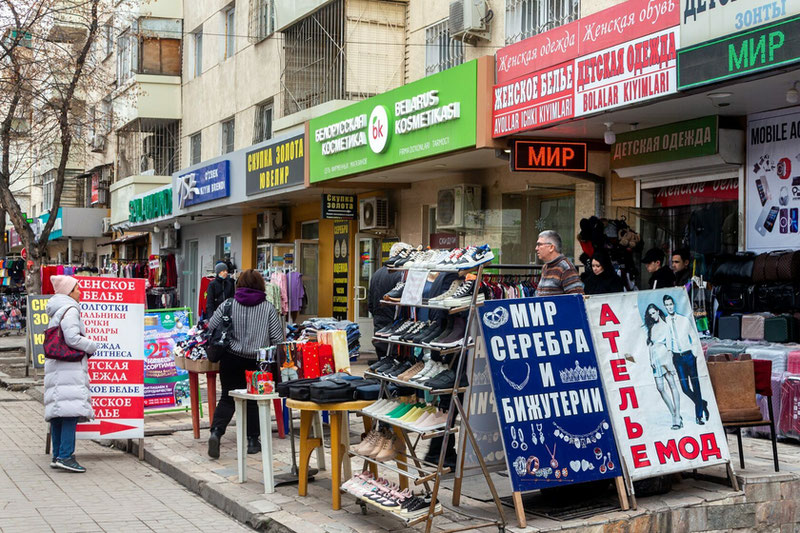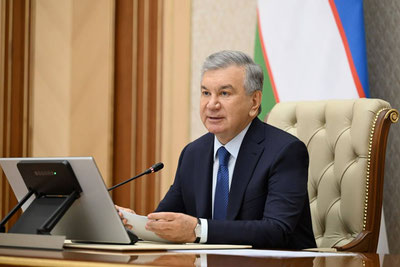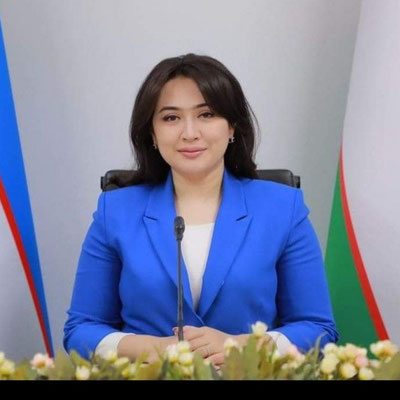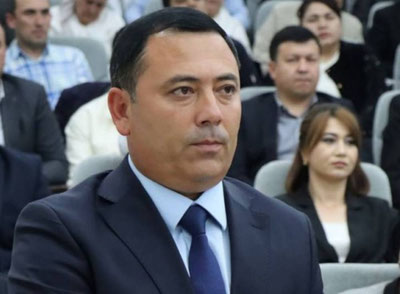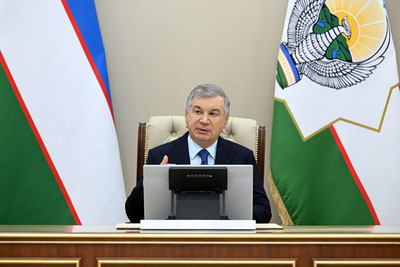Language is a unique characteristic, immense and unparalleled wealth, and invaluable heritage of every nation. That is why sayings such as “Respect for language is respect for the nation”, “A nation that knows its language knows itself” carry a world of meaning.
According to data, the population of the Earth speaks almost seven thousand languages and dialects. About two thousand of them are on the verge of extinction. More than ninety percent of our planet's inhabitants speak seventy languages. Each of these languages is spoken by over five million people, and the total number of languages spoken by more than twenty million people does not exceed forty. Around 50 million people speak Uzbek worldwide, ranking it the 26th most spoken language.
Another interesting figure: While there are thousands of languages and dialects worldwide, only about one hundred languages have the status of the state language. Thus, we have the right to take pride in our native language being among these one hundred. Millions of people outside our country also speak this language. Books, newspapers, and magazines are published in the Uzbek language in various countries, and television and radio broadcasts are transmitted. Currently, our language is actively used on the internet, in information technology, and even in artificial intelligence projects.
At present, many countries and higher education institutions around the world teach Uzbek language and literature as a separate subject. The increasing number of Uzbek-language websites on the Internet indicates the growing prestige of our language in the virtual world. It is possible to use Uzbek-language websites anywhere in the world.
In the past, our great ancestors always fought for the development and dignity of our language, and they achieved great feats in this direction. Great poets and literary figures like Mavlono Lutfiy, Alisher Navoiy, Mirzo Bobur, Boborahim Mashrab created beautiful and unique poetic gems in our language, ensuring its immortality.
The sultan of the realm of poetry, the great Alisher Navoiy wrote in his poem “Lison ut-Tayr”:
When I took pen in hand in Turkic verse,
I turned that realm into a single discourse.
Indeed, our great ancestor created unique works in the Turkic - Uzbek language, managing to unite the people under a single language, a single pen. In his work “Muhokamat al-Lughatayn”, he also proved the richness and diversity, the delicacy and luster of our language, demonstrating that it is second to none.
During the era of the former system, the totalitarian ideology, our national values, rich historical heritage, and spirituality were under pressure. However, even before the shackles of tyranny were smashed, giving the Uzbek language the status of the state language in our country was a significant act of courage, marking an important event in the spiritual life of our people.
Thirty-five years is historically a short period. Yet, it’s a sufficient time for a law to come into effect, for its rules and guidelines to be implemented. During this time, specific works have been carried out and are being carried out regarding the execution of this historic law. Many examples can be analyzed and provided in this regard.
Indeed, official work is mainly conducted in the state language. Documents of the state power, local governance, and other governmental bodies are adopted in the state language. Currently, respect and regard for the languages of nations and ethnicities living in our country are ensured, and conditions for their development are being created.
However, it cannot be said that the requirements of this law are fully complied with everywhere. Although this has been incessantly written and talked about for several years, the procedures in some agencies still remind us of the distressing situations of the former system.
The attention to the state language, its status is not only visible in normative documents, official institutions, but also in writings, plaques, and various announcements in the streets. The disrespect towards our language is glaringly visible in the streets, on public transport, especially metro wagons, signposts, and dedicated columns.
At this point, not only relevant institutions, officials but also ordinary citizens show disrespect towards the state language. It's increasingly becoming a trend for parents to enroll their children in kindergartens and schools that teach in Russian and other languages, and in the streams of higher education institutes. I have often witnessed parents boasting about their children speaking Russian and English better than Uzbek. I frequently observe parents who communicate with their children in Russian. Some of our compatriots, even those who cannot properly articulate their names in Russian, believe mistakenly, "Well done, your child speaks another language better than your mother tongue, but this does not make your child belong to someone else's nation or ethnicity." Such situations often lead to children growing up indifferent to their language, thus to their parents, nation, and national mentality.
The signs hung in public transport in the capital will dishearten you. How could it be that drivers and responsible persons do not consider translating and writing the “toponyms” into Uzbek such as “SAMPY”, “Selkhoz”, “Severovostok”, “Alayskiy”, “Kuylyuk”, “Kara-kamysh”, “Farhadskiy”, “Rysovyy”, “Parkentskiy”, “Ippodrom”, “Zoopark”, “Square”, “Lunacharskiy”, “Akademgorodok”, and so on? I once asked this question to someone and got a peculiar answer: "If we wrote these in Uzbek, many wouldn’t understand..."
Cinema, television, radio, press, and internet publications are the main propagators of language. Therefore, it is imperative for announcers, presenters, film directors, and other relevant fields to approach the Uzbek language with respect, adhering to the standards of the literary language. Unfortunately, we often witness the opposite.
The inability of some young singers to properly speak a couple of sentences in the Uzbek language, the mixing of foreign phrases into "songs" burgeoning after the rain, the use of a jumbled mixture of words and phrases, inherent to the language of street thugs, in numerous "popular" films and series, and by bloggers, viners, traders, and worse, is nothing but disrespect towards the language.
When appropriate, it is worth mentioning another consideration. On various online publications, too, the standards of language are being bluntly violated, with some terms being used in other languages even though their Uzbek equivalents exist. It seems appropriate to remind some of our colleagues that geographical names such as Morocco, Algeria, Yemen, Kuwait, Syria, Israel, Qatar, Bahrain mentioned frequently in mass media should be written and pronounced in Uzbek as Marokash, Jazo'ir, Yaman, Kuwait, Suria, Isroil, Qat"ar, Bahrain.
The eloquence, scope, capabilities, and richness of the Uzbek language can compete with any language in the world. In some foreign languages where a word can express something, in Uzbek language, it's possible to find four, five, or more synonyms.
The Uzbek language is the most precious and immeasurable wealth of our people. It's our duty and debt to cherish, protect it like the apple of our eye, and pass it on to future generations. The law on the state language will serve as a guideline in this path.
Rustam Jabborov
